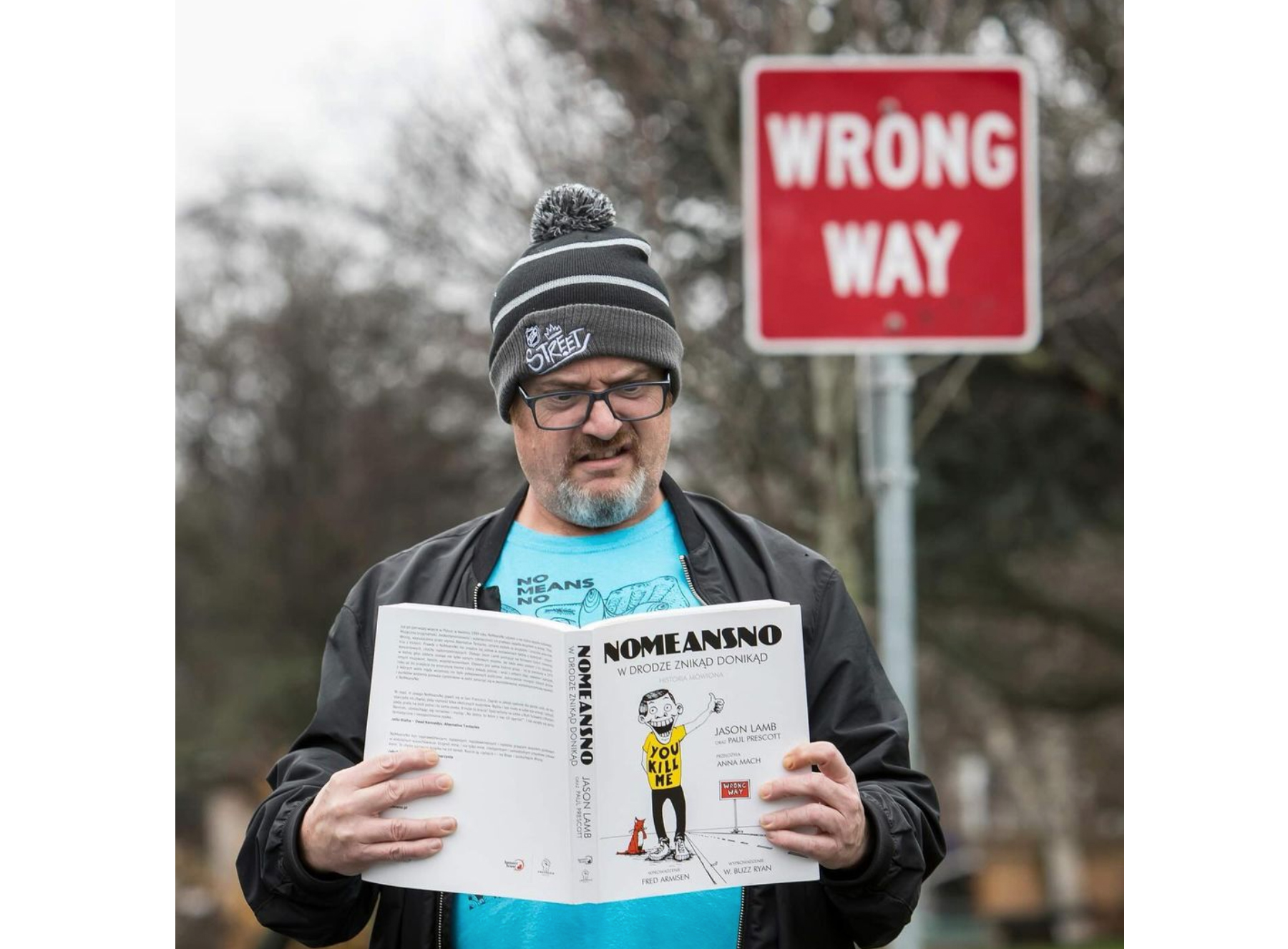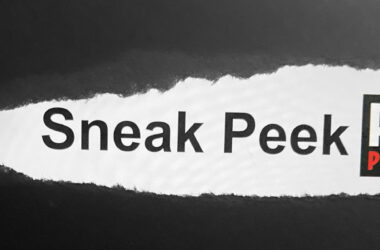By Craig Campbell
Louder than War
January 2nd, 2024
Canada’s greatest sibling exponents of six-string delinquency, get a well-deserved eulogy via a vital new book on the band.
It’s rare these days, especially in the digital age, that it’s possible for a seminal band to if not disappear altogether then certainly slip from the public consciousness. So has been the curse for NoMeansNo, a band with the greatest sense of rhythm in punk rock history and who ticked every box going in the commandments of a rebel yell, primordial music. Thou shalt not sell out. Check. Thou shalt be as diverse as fuck. Check. Thou shalt shower down lightning bolts on thy audience by being a musical maelstrom and yet still retain an adolescent sense of humour via in-jokes and sloganeering. Check. Check. Check.
It seems strange then that for some reason their brilliance has hardly been documented. Until now that is. This new oral history on the band (‘From Obscurity To Oblivion’ ) should go a long way to filling in the blanks for those still oblivious to their influence whilst appeasing those believers who fully bought into their no-frills philosophy. As their name suggests NoMeansNo were a band who eschewed commercial opportunities if they didn’t tie in with their righteous, punk rock beliefs. Consequently, this book chronicles a band who stuck steadfastly to their roots, but who frustratingly never quite received the worldwide fame their talent deserved. As comedian Fred Armisen points out in his foreword: ‘They found the key to sounding urgent and timeless at the same time… I wanted the whole world to experience them.’
Like those other great oral histories ‘Please Kill Me’ and ‘Meet Me In The Bathroom’, ‘From Obscurity To Oblivion’ does a fantastic job of peeling back the layers and succinctly building a singular musical world that is both authentic and secretive. First laying the foundations for brothers Robert and John Wright’s tentative steps into punk rock, the book takes us to Victoria, British Columbia where an early love of the Ramones and English punk set a blue centre light fizzing between the inquisitive brothers before an early gig by DOA witnessed wide-eyed and beguiled by Rob Wright really set the wrecking ball swinging.
Author Jason Lamb ( assisted by Paul Prescott ) has done an amazing job here in getting the various associations of the Wright brothers to recall even the smallest details. Their early spirit and enthusiasm are reflected in the opening chapters where the brothers find their feet and their tribe, slowly forging their way into the Victoria punk scene. That communal philosophy, from their Vancouver house headquarters to clubs like the Rats Nest are rightly championed as vital to the band but the story of NoMeansNo really ignites once the band hits the States. You really get the sense of both the excitement and slight frustration of being in a visionary punk rock band in those times, as the quotes ramp up, describing the band being championed by their peers and having releases on Jello Biafra’s Alternative Tentacles label; only to still have to graft away toilsomely, touring Europe and beyond as their incendiary live performances forged their reputation – albeit slower than the band probably appreciated.
Perhaps that stamina and honing of craft is the blueprint to a masterwork because NoMeansNo in 1989 released theirs. The section of the book on their incredible ‘Wrong’ album is as detailed and as reverential as you might expect. From the industry contained in making the record to the almost universal acclaim it received, it had a particular effect on virtually every musician who heard it. ‘Wrong to me is like a punk rock Ziggy Stardust. Each song is better than the last somehow,’ gushes Blink 182’s Matt Skiba and he’s not alone in the book in worshipping at the albums altar. From Faith No More’s Billy Gould to Rise Against’s Joe Principe there’s an impressive roll call of musicians who praise its influence. Although NoMeansNo are typically modest about its achievements. ‘We always did better on the merch than the records,’ sighs member Andy Kerr at one point, perhaps ironically given that the band from then on were about to wade into lucrative waters.
The subsequent chapters on the band chronicle a group trying to maintain a dignified stance on commercialism and success whilst their audiences expanded and temptations grew. Tensions are described and there’s a slight frustration amongst those talking about the band that some of those opportunities weren’t taken up. A frustrated Andy Kerr leaves and eventually, guitarist Tom Holliston replaces him. By now huge in Europe the book dutifully ricochets along showing the inner workings of a band getting by on the adrenalin of playing live ( a description of them playing to 60,000 people at the Rocksilde festival is boilerplate ). Strangely though, it’s actually those behind the scenes who beyond that, provide the clearest-eyed view of NoMeansNo. People like the bands manager Laurie Mercer whose insight provides a steadier and more philosophical tone about their career. It leaves a slight but lingering accusation. Did the bands purist actions mean they somehow self-sabotaged themselves in a strange way?
Perhaps the biggest answer to that question is through the direct quotes from the Wright brothers themselves. ‘You get too popular and it just becomes consuming,’ Rob Wright sighs at one point. Brother John also alludes to his unhappiness at being part of any cog of the machine. ‘We didn’t want to be someone’s employee at a record label. Bands are just contracted workers and the music is just the product,’ he says.
By the end of this marvellous book, it’s hard not to agree with them. Even as fifty-year-olds the band were still turning down lucrative TV appearances and shuffling into award ceremonies like they were heading for an executioners guillotine. There was simply no give in them and ultimately what you’re left with is a rare sense of lingering nobility in the music industry, from a band who put creativity over conservatism and professional impudence over personal gain. They may well be the greatest punk rock band never to bask in the vainglorious spotlight, but like a secret treasure, their legacy is waiting to be discovered by a whole new youth cabal in search of furious and electrified sounds.






